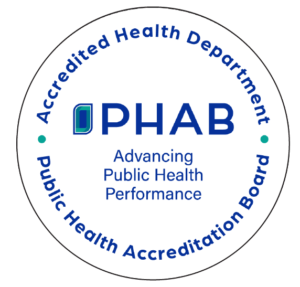What is pinworm?
Pinworms are small, white worms that live in the intestines. Although anyone can get pinworms, they are most common in children aged 5-14 years. Pinworms are about the length of a staple. People who have pinworms aren’t dirty, and kids can get pinworms no matter how often they take a bath.
What are the symptoms?
Often, a person can have a pinworm infection without having any symptoms. When symptoms are present, the most common symptom is itching around the rectum. About 2 to 4 weeks after a person gets the pinworm eggs, adult female pinworms start moving from the intestine to the area around the rectum. There, they will lay new pinworms eggs, which trigger itching around the rectum. It is worse at night and can lead to not getting a good night’s sleep. If your child has a pinworm infection, you might be able to see the worms in the toilet after he/she goes to the bathroom or on their underwear when they wake up in the morning. They look like tiny pieces of white thread.
How do you get pinworm?
Pinworm is easy to get from someone who is infected. Pinworm is usually spread from child to child, and the eggs can be picked up on children’s fingers when they are playing. Eggs can stay on your child’s skin for several hours. If the eggs are on your child’s hands or toys, and your child puts their fingers or toys in their mouth, the tiny eggs can enter their bodies. The eggs stay in the upper part of the intestine until they hatch. After they hatch, the worms move down the length of the intestine, and then out the rectum where they lay eggs.
When children scratch their itchy bottoms, the tiny eggs can get under the fingernails. As the children move around the house, the eggs may be spread, and other family members may become infected. Children easily infect each other while they are playing and by not thoroughly washing their hands before eating.
Pets do not spread pinworms.
Pinworm eggs can be found on many different surfaces, including: bed linens; towels; clothing (especially underwear and pajamas); toilets; bathroom fixtures; food; eating utensils; kitchen counters; desks; toys, etc.
How is pinworm infection treated?
Most pinworm infections are mild and easily treated. Your doctor will order a single dose of medicine. After 2 weeks, the doctor may give a second dose of antiworm medicine. Although the medicine takes care of the worm infection, the itching may last about a week after the medicine is taken. Your doctor may also give your child a cream to help stop the itching.
Should family members be treated?
Check with your doctor. Some authorities recommend treating all individuals in a household with an infected child, while others recommend treating only those who have symptoms.
What are some prevention tips?
- All family members must wash their hands and clean under the fingernails carefully before meals, after using the toilet, after playing outside or changing diapers.
- Make sure your child showers or bathes and changes underwear daily.
- Have your child bathe in the morning to reduce egg contamination.
- Keep your child’s fingernails short and clean.
- Tell your child not to scratch around their bottom or bite their fingernails.
- Wash the bed linens, clothes and towels in hot water the day you give the medicine.
- Scrub the toilet with a cleanser on the day the medicine is given, and the day after.
Can a person get re-infected?
Yes. Call your doctor if symptoms recur.
The pinworm infection is contagious and it is not unusual for infections to recur. The infected person should be treated with the same two-dose treatment. Additionally, close family contacts should also be treated.

